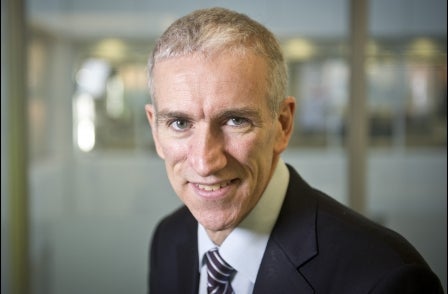
The chief executive of News UK has said that newspaper publishers must sacrifice readership numbers in order to maintain profitability.
Mike Darcey told The Times CEO Summit at the Institute of Directors this morning that the The Sun’s decision to join stablemate newspapers The Times and The Sunday Times in going behind a paywall was taken in order to secure its long-term future.
He said there was no point in websites boasting high page-view numbers if they did not produce “meaningful revenue”, adding that chasing more users “undermines the piece of business that does make money” and was only “good for the ego”.
He said: “So if your purpose contemplates still being here in five to 10 years time, then the choice seems clear: it is better to sacrifice reach and preserve sustainable profitability.
“Moreover, when we sacrifice this so-called reach, what have we really lost? A long tail of passing trade, many from overseas, many popping in for only one article, referred by Google or a social media link, not even aware they are on a Times or a Sun website, wholly anonymous.
“That passing trade was good for the ego, if unique user stats do that for you, but they don’t really add to our purpose at all.”
Darcey said that giving content away for free online that print readers had to pay for “seems pretty silly” and that “many publishers are moving away from that sort of idea”.
“To those who are holding out, I wish them the best of luck,” he added.
The Sun will start charging for access to its website from August when the News UK titles will also begin show near-live highlights of Premier League football matches via their websites.
Speaking a day after News UK, the new name for News International, formally split from Rupert Murdoch’s TV and film and entertainment business 21st Century Fox, Darcey also defended the newspaper industry in the wake of the phone-hacking scandal.
“Since I joined News UK we have thought a lot about our purpose,” he said. “Following recent criticism of the newspaper industry, we have spent time reminding ourselves about what our papers are for.
“Some politicians might prefer it if we weren’t here at all, but without a vibrant news industry our democracy and society would be immeasurably weaker.”
He added: “Of course we don’t have a monopoly on the truth, and other publishers will take a different stance, express different views, and this is right and important in a plural society.
“But without newspapers and other professional journalists playing this role, as they have done for hundreds of years, I fear the news agenda of the day would come to be set by the press offices of the Government and other political parties, supplemented by anonymous, amateur commentary on Twitter.
"If that were the case then I think the world would be a much poorer and less well informed place.
"So while the past two years have not been an easy time in the newspaper business, focusing primarily on things that people in the media shouldn’t be doing, they have also helped to remind us of the unique contribution newspapers still make to life in Britain.”
Email pged@pressgazette.co.uk to point out mistakes, provide story tips or send in a letter for publication on our "Letters Page" blog
